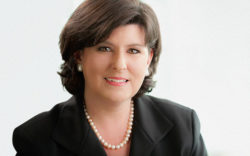“Our long national nightmare is over.” Gerald Ford said that in 1974 after Richard Nixon resigned as president, but the comment could also apply to the recently concluded special election in the 6th Congressional District.
It was endlessly reported that the election in which Republican Karen Handel defeated Democrat Jon Ossoff was the most expensive congressional election in history. The two sides raise and spent a combined total of more than $50 million.
It was also the longest congressional race in history. The campaign really started last Nov. 29, when Donald Trump said he was naming Tom Price as the secretary of health and human services. It did not wrap up until the runoff election on June 20, just a few days short of seven months later.
The race showed, once again, that Georgia voters are almost impossible to poll accurately. In the last two weeks of the campaign, every public poll had Ossoff either tied or leading Handel by a narrow margin. There was not a single public poll that showed Handel in the lead. But Handel won a relatively easy victory in the runoff, beating Ossoff by 52–48 percent. Are the polling firms grossly incompetent, or are voters not telling pollsters the truth when they are surveyed? It is the single greatest mystery of today’s politics.
Democrats thought they had a real chance to score an upset in the 6th District and take a House seat from the Republicans. Their optimism was based largely on the fact that Trump only won the district by 1.5 percentage points over Hillary Clinton in the presidential election.
They obviously were reading too much into the presidential results, because the 6th District otherwise has been a strongly Republican district for a long time. Mitt Romney won the district by more than 20 points in the 2012 presidential election, and the former congressional incumbent, Tom Price, won each of his last three elections there by more than 20 points.
For Ossoff to attract as much as 48 percent of the vote in this heavily Republican district was an amazing feat—but it takes 50 percent plus one vote to win an election.
Handel, who finally found a political race she could win, was a familiar name to the district’s voters, and a safe choice who could consolidate the support that had gone to the other Republican candidates in the initial round of voting on April 18.
She relied on the tried-and-true formula of attacking her opponent as a “San Francisco liberal” and a radical outsider who would be a “puppet for Nancy Pelosi.” Time and again, Handel told voters, “He’s not one of us.” It’s an old strategy, but still an effective one. As one Handel voter told a reporter, “There are just too many Californians involved in the situation.”
For the record, Ossoff was born and raised in Georgia. The real outsider in the race was Handel, who was born and raised in the Washington, D.C. area. Such is the power of negative advertising in politics.
For someone who had never run for office before, Ossoff turned out to be a very disciplined campaigner who was always able to stay on message.
On the other hand, he made a huge mistake when he failed to exploit two issues that could have really damaged his opponent. He could have reminded voters of Handel’s ties to Trump so that he could capitalize on the president’s unpopularity, but he didn’t. Ossoff also failed to make an issue of Handel’s support of the Trumpcare bill that is now being considered by the Senate. This legislation will result in thousands of 6th District residents losing their health care coverage if it becomes law.
Ossoff essentially gave Handel a free pass on the two biggest issues in the race. She was more than happy to take it.
Like what you just read? Support Flagpole by making a donation today. Every dollar you give helps fund our ongoing mission to provide Athens with quality, independent journalism.










